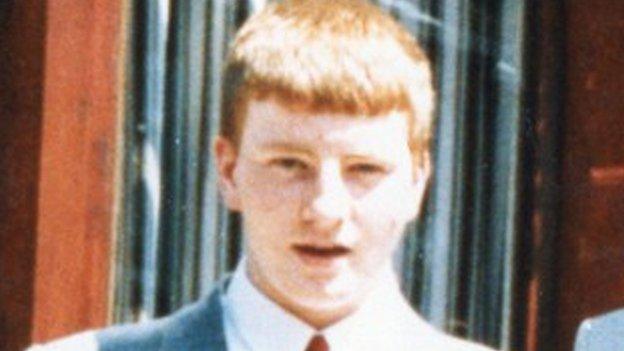Hillsborough inquests: Fans taken from ambulance 'had died'
- Published
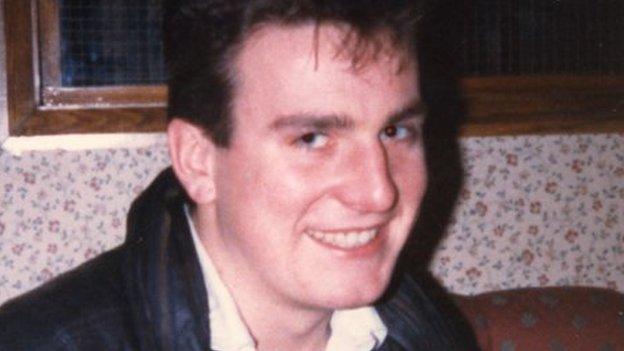
Steven Robinson had gone to the match with two friends
A former police inspector has defended his decision to order two casualties to be taken out of an ambulance on the pitch at the Hillsborough disaster.
John Harper told the new inquests he believed "very firmly and strongly" the two football fans, including 17-year-old Steven Robinson, were already dead.
He told the jury he then went to look for other casualties who were alive to replace them in the ambulance.
Ninety-six fans were fatally injured in a crush at the 1989 FA Cup semi-final.
The hearings focussed on the deaths of Steven, father-of-three David Hawley, 39, and 17-year-old Stephen O'Neill.
Steven Robinson went to the Liverpool versus Nottingham Forest match with friends, but they became separated.
He eventually made it into pen four on the Leppings Lane terraces.
The jury saw footage of Michael Hollinghurst, a nurse based at Whiston Hospital in Merseyside, apparently giving Steven first aid.
He said it was "utter bedlam" and he was convinced he would die if the crush had not subsided.
Mr Hollinghurst said he was "reacting instinctively" when he tended to Steven and another casualty who were both turning blue and needed "urgent attention".
Steven was lifted into the back of a St John Ambulance vehicle with another casualty, but Mr Harper said he ordered them to be removed because space was needed for survivors.
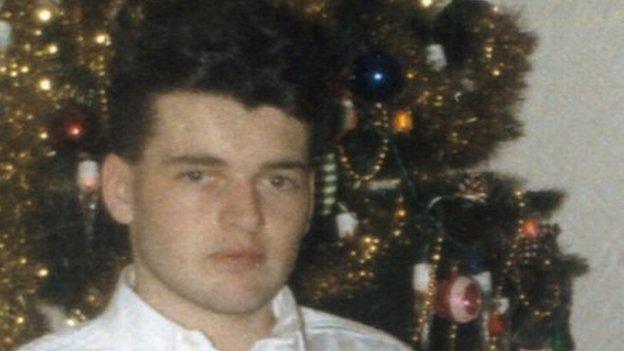
Stephen O'Neill's condition deteriorated on the way to hospital
He said a third casualty, who he believed had a chance of survival, was placed on the floor.
'Made decisions'
He said he was "very confident" and believed "firmly and very strongly" that Steven and the other man had died.
They were both put on to the grass at the back of the ambulance.
Asked if they were left with anybody, Mr Harper said "not that I can remember".
Mr Harper, who said he had received some first aid training, said he would usually check for a pulse in the neck and see if casualties were breathing by putting his ear and mouth near their mouth to feel for breath.
Nick Brown, a barrister representing Steven's parents Rose and Bernard, challenged Mr Harper over whether he checked Steven for any signs of life.
Mr Brown said Mr Harper had not recorded doing so in a statement made in 1989.
Mr Harper said he was under pressure and "you do what you think you have got to do at the time".
When Mr Brown asked if assessments were not carried out because of that pressure, Mr Harper said the barrister "could possibly be right but he was trying to save people, not kill them."

Who were the 96 victims?
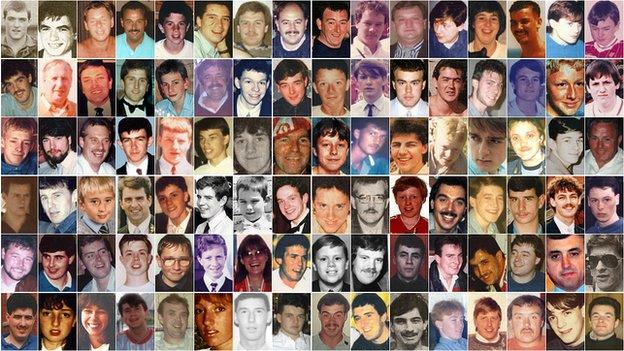
BBC News: Profiles of all those who died

The jury also heard from Martin Carey, who was a 34-year-old Nottingham Forest supporter who gave first aid to Stephen O'Neill who "definitely" had "a light pulse in the wrist".
The jury heard how Stephen's condition "deteriorated" on the way to hospital as medics tried unsuccessfully to revive him.
The inquests, sitting in Warrington, Cheshire, continue.
- Published22 June 2015
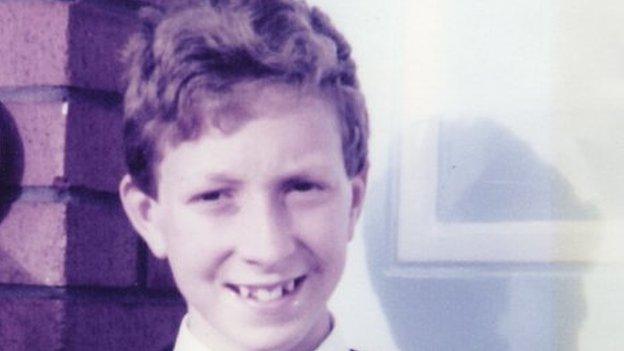
- Published18 June 2015
